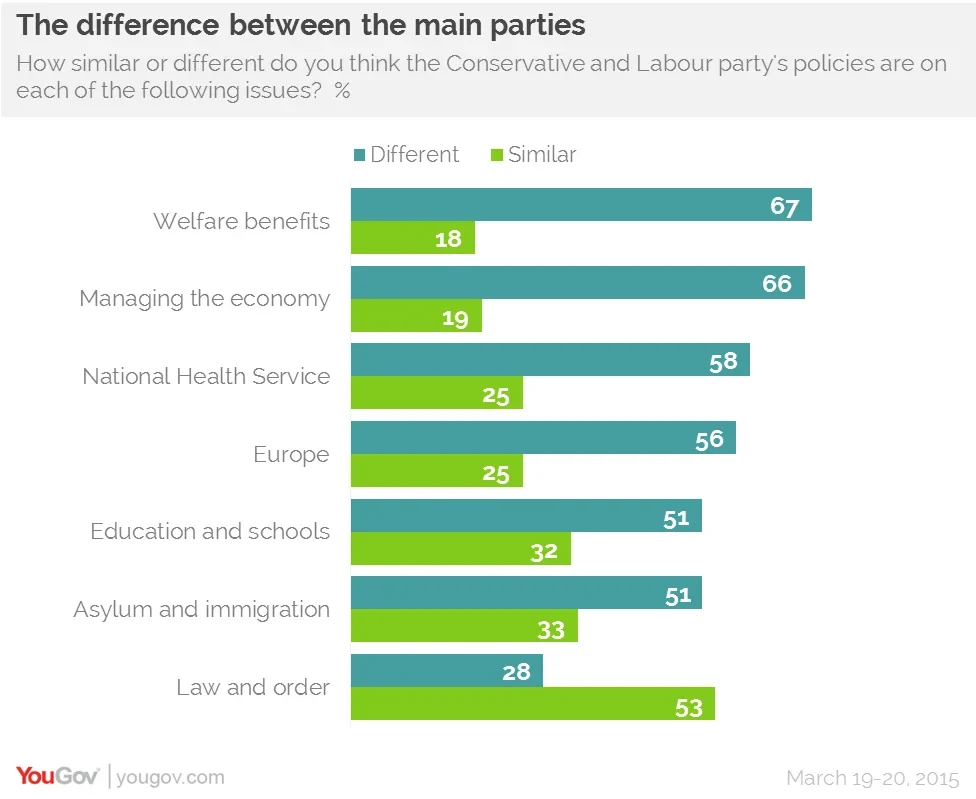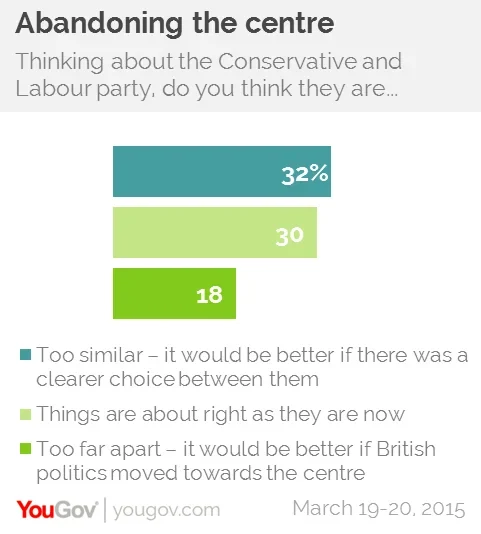Voters do see a choice between the two main parties - but only 21% think they are 'very different'
Ed Balls said he wouldn’t reverse any of George Osborne’s budget last week – an admission intended to make the speech look ‘empty’, but which could be read as displaying a lack of substantial difference between the two main parties. It’s not the first time Labour have accepted Tory measures: they support universal credit in principle, haven’t committed to reversing the public sector pay freeze and have signed a coalition charter on deficit reduction.
A complaint we hear particularly from UKIP and SNP supporters is that there’s very little difference between the main parties. New YouGov research suggests that the general public do believe there is a choice between the Tories and Labour, but they are not viewed as very different. 38% think they are 'fairly' different in their policies and ideals and 21% think they are 'very different', while 30% say they are very or fairly similar. On six out of seven of the biggest issues to voters a majority say Labour and Conservative policies are different.

Supporters of both parties are mostly in agreement about the difference between them, however on the NHS Conservatives are more likely to say they are similar (32% compared to 12% of Labour voters).

Many voters (32%) would rather there was a clearer choice between the two parties however, and notably Labour voters (31%) are more likely than Conservatives to be unhappy with the current similarity. Only 18% say it would be better if both parties moved closer to the centre, while 30% say things are about right as they stand now.
Voters might see the main parties as standing for different ideals, but this hasn’t stopped them looking for less centrist politics – the combined Conservative and Labour share of the vote has fallen from 96% in 1955 to 65% in 2010, and current polling suggests the ‘other’ parties will rise even further this May.
PA images






